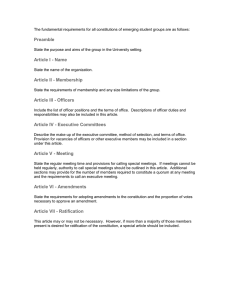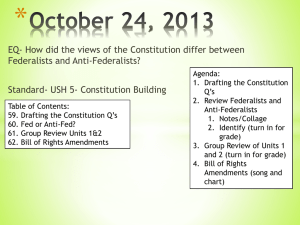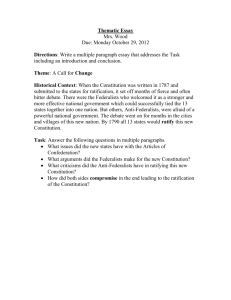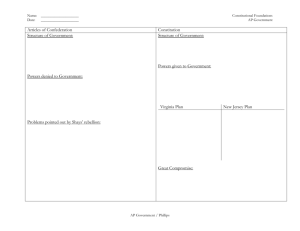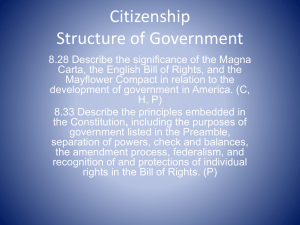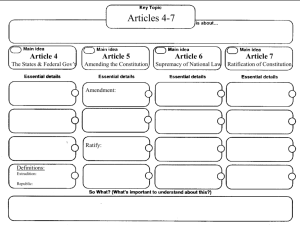Unit I: Constitution Test Study Guide
advertisement
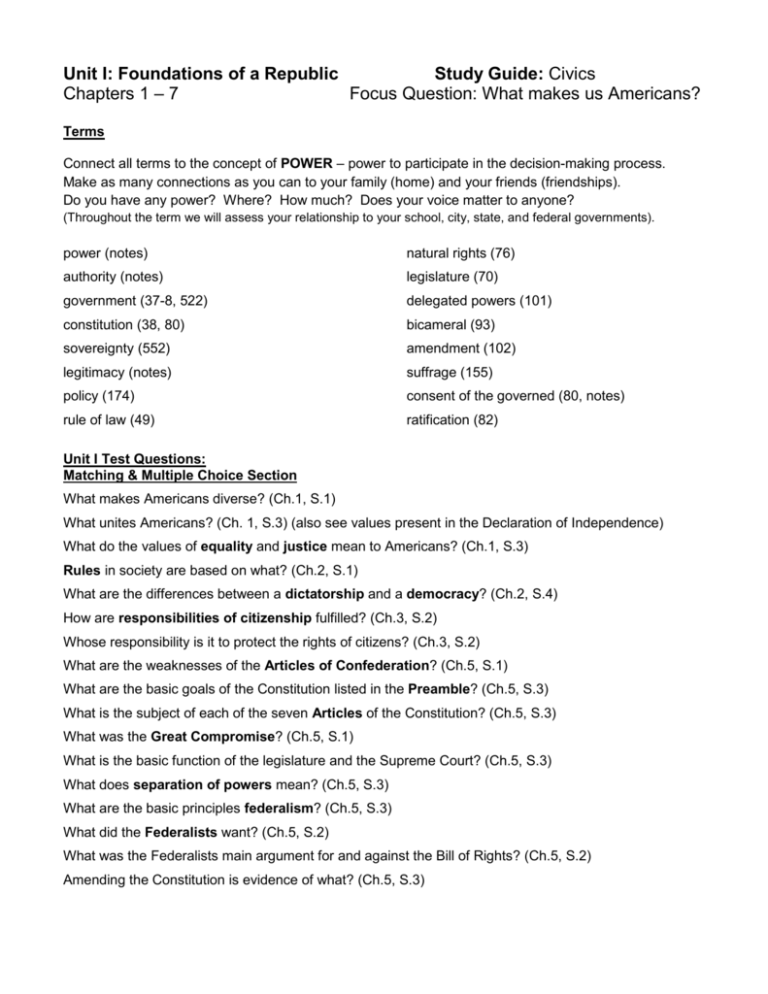
Unit I: Foundations of a Republic Study Guide: Civics Chapters 1 – 7 Focus Question: What makes us Americans? Terms Connect all terms to the concept of POWER – power to participate in the decision-making process. Make as many connections as you can to your family (home) and your friends (friendships). Do you have any power? Where? How much? Does your voice matter to anyone? (Throughout the term we will assess your relationship to your school, city, state, and federal governments). power (notes) natural rights (76) authority (notes) legislature (70) government (37-8, 522) delegated powers (101) constitution (38, 80) bicameral (93) sovereignty (552) amendment (102) legitimacy (notes) suffrage (155) policy (174) consent of the governed (80, notes) rule of law (49) ratification (82) Unit I Test Questions: Matching & Multiple Choice Section What makes Americans diverse? (Ch.1, S.1) What unites Americans? (Ch. 1, S.3) (also see values present in the Declaration of Independence) What do the values of equality and justice mean to Americans? (Ch.1, S.3) Rules in society are based on what? (Ch.2, S.1) What are the differences between a dictatorship and a democracy? (Ch.2, S.4) How are responsibilities of citizenship fulfilled? (Ch.3, S.2) Whose responsibility is it to protect the rights of citizens? (Ch.3, S.2) What are the weaknesses of the Articles of Confederation? (Ch.5, S.1) What are the basic goals of the Constitution listed in the Preamble? (Ch.5, S.3) What is the subject of each of the seven Articles of the Constitution? (Ch.5, S.3) What was the Great Compromise? (Ch.5, S.1) What is the basic function of the legislature and the Supreme Court? (Ch.5, S.3) What does separation of powers mean? (Ch.5, S.3) What are the basic principles federalism? (Ch.5, S.3) What did the Federalists want? (Ch.5, S.2) What was the Federalists main argument for and against the Bill of Rights? (Ch.5, S.2) Amending the Constitution is evidence of what? (Ch.5, S.3) Fill-in & Writing Section List the four characteristics of a country (522). Know the subject, head institution, & primary function of Articles I, II, & III. (101-2) Know at least three delegated powers of Congress (in Article I, Section 8). Provide an advantage of a dictatorship and of a democracy. (38, 83) Provide an example for each of the six basic principles (LG, PS, SP, CB, JR, F) of the Constitution – a definition is only worth half credit. (103-5, 108) Bill of Rights: know the First Amendment (all five parts) and two other amendments (your choice). (Ch. 6) Amendments 13 to 26: Know the subject of two amendments and the social movement or event that influenced their ratification. (Ch. 7) Presidential and parliamentary forms of government (Draw a diagram explaining the differences). Distributing power on a geographical basis – unitary, confederal, federal (Draw a diagram for each, label and describe it.
